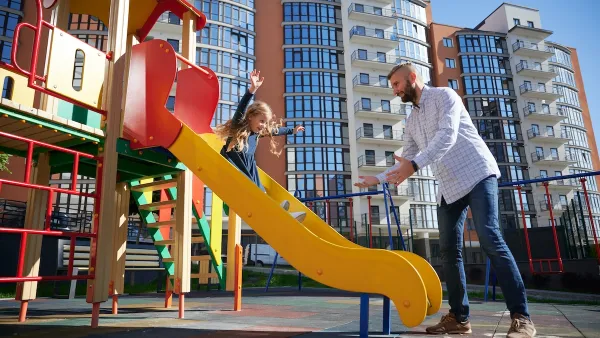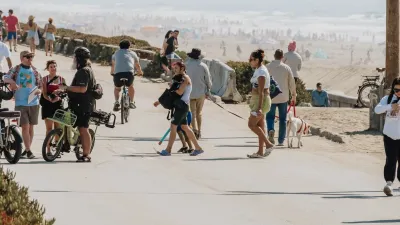Seattle is growing more dense, which is underlining the importance of the city's public spaces. But as this piece from Crosscut argues, the city's public spaces are mostly bleak and underused.
"The more the air space around us becomes stuffed with architecture, the more acutely we need the relief of thoughtfully landscaped open spaces on the ground. Arguably, these spaces are more important in the built environment than most buildings because they're public - people use them.
Or if they're emotionally cold, dreary, or austere, people don't use them, which is the case with a number of Seattle's precious open spaces. On one of our desperately rare sunny spring days this month, I visited about a dozen open spaces in the dense city and found - no surprise - the bleak ones practically unused and the beautiful ones full of life. What is surprising is that we're not demanding more graceful, humane, imaginative design - and raising hell over trends such as Seattle Parks and Rec's inexplicable new fascination with concrete and gravel."
The story includes a slideshow of nine of the city's poor public spaces, and two of its more beautiful examples.
FULL STORY: Why does Seattle have so many bleak public spaces?

Maui's Vacation Rental Debate Turns Ugly
Verbal attacks, misinformation campaigns and fistfights plague a high-stakes debate to convert thousands of vacation rentals into long-term housing.

Planetizen Federal Action Tracker
A weekly monitor of how Trump’s orders and actions are impacting planners and planning in America.

In Urban Planning, AI Prompting Could be the New Design Thinking
Creativity has long been key to great urban design. What if we see AI as our new creative partner?

King County Supportive Housing Program Offers Hope for Unhoused Residents
The county is taking a ‘Housing First’ approach that prioritizes getting people into housing, then offering wraparound supportive services.

Researchers Use AI to Get Clearer Picture of US Housing
Analysts are using artificial intelligence to supercharge their research by allowing them to comb through data faster. Though these AI tools can be error prone, they save time and housing researchers are optimistic about the future.

Making Shared Micromobility More Inclusive
Cities and shared mobility system operators can do more to include people with disabilities in planning and operations, per a new report.
Urban Design for Planners 1: Software Tools
This six-course series explores essential urban design concepts using open source software and equips planners with the tools they need to participate fully in the urban design process.
Planning for Universal Design
Learn the tools for implementing Universal Design in planning regulations.
planning NEXT
Appalachian Highlands Housing Partners
Mpact (founded as Rail~Volution)
City of Camden Redevelopment Agency
City of Astoria
City of Portland
City of Laramie





























